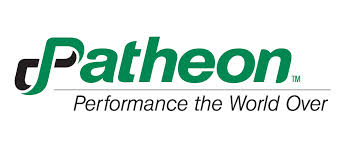Flexible manufacturing can help pharmaceutical industry avoid high costs of inaccurate demand forecasts

Survey about product launch challenges finds instances of demand forecasts off by more than 50%, leading to sales losses and reputation damage.
A survey of 50 pharmaceutical industry senior managers found a majority of companies had either overestimated or underestimated demand for new drugs by up to 25%, with some reporting instances of forecasts being off by more than 50%. The results of the survey — conducted by business intelligence firm ORC International and sponsored by Patheon — are published in a white paper, “Pharmaceutical Product Forecasting and Its Impact on Manufacturing.” The white paper includes insights from the 50 industry experts and commentary from Jim Miller, founder and president of PharmSource.
When a company fails to meet its forecasted demand, the lack of inventory can result in loss of sales, product risk and overworked employees. It is estimated that a delay in launch costs an average of $15 million per drug, per day, and research shows that a blockbuster drug will lose $1 billion in revenue annually until capacity is developed to meet demand. Generally, underestimating resulted from not having enough background data to support forecasting information.
“Making accurate demand forecasts is extremely challenging for pharmaceutical companies, particularly forecasts for new product launches,” said Michael Lehmann, executive vice president sales and marketing for Patheon. “As a driver of innovation and a transformative force in the industry, Patheon is focused on helping clients find innovative solutions to their challenges.”
If demand is overestimated, it leads to misappropriated capital, forcing manufacturers to mark down the price of the product, destroy inventory and/or close plants and lay off employees, losing the roughly $500 million it cost to acquire their pharmaceutical plant. Respondents said that they often overestimated demand when there is greater market volatility or when they were overly optimistic in their forecasting.
These inaccuracies in demand forecasting, combined with increases in complex manufacturing processes, are driving the need for more choices in manufacturing solutions. Pharmaceutical companies have started outsourcing drug production to take advantage of more flexible manufacturing offerings, and to mitigate risks and prevent the reputational damage resulting from inaccurate demand forecasts.
“It is clear that regardless of company size, product type, or market, the challenge of demand forecasting is a significant one,” said Dana Benini, vice president, ORC International. “Since forecasts by their very definition involve a degree of uncertainty, pharma companies should be talking about how flexible, scalable capacity can accommodate the variability factor, and minimize the impact of inaccurate estimates for a product that does not yet exist.”
Flexible manufacturing services, like those provided by Patheon, complement the traditional outsourcing service model through adaptable and scalable capacity, and allows clients to increase and decrease capacity as needed. In the face of uncertain forecasts, contract development and manufacturing organizations (CDMOs) can offer the facilities, equipment and process technology expertise needed for operations and risk management.
Patheon commissioned the study to better understand the challenges pharmaceutical companies encounter when implementing demand forecasts for commercial launches. The findings were based on in-depth interviews examining current forecasting processes, key issues that arise from inaccurate forecasting, and how forecasting needs will change in the future.
Related News
-
News Patients vs Pharma – who will the Inflation Reduction Act affect the most?
The Inflation Reduction Act brought in by the Biden administration in 2022 aims to give better and more equitable access to healthcare in the USA. However, pharma companies are now concerned about the other potential costs of such legislation. -
News CPHI Podcast Series: What does the changing US Pharma market mean for industry and patients alike?
In this week's episode of the CPHI Podcast Series Lucy Chard, Digital Editor for CPHI Online is joined by James Manser to discuss the political and market changes in the US pharma field. -
News CPHI Barcelona Annual Report illuminates industry trends for 2024
The CPHI Annual Survey comes into it’s 7th year to report on the predicted trends for 2024. Over 250 pharma executives were asked 35 questions, with their answers informing the industry landscape for the next year, spanning all major pharma marke... -
News Which 10 drugs are open to price negotiation with Medicare in the USA?
The Centres for Medicare & Medicaid Services, under the Biden administration in the USA, has released a list of the 10 drugs that will be open to price negotiations as part of the new legislation under the Inflation Reduction Act (IRA). -
News EU Medical Devices Regulation causes unintended disappearances of medical devices for children, doctors state
Doctor groups and associations have appealed to the EU to correct the EU Medical Devices Regulation law that may cause unintended shortages of essential drug and medical devices for children and rare disease patients. -
News 10 Major Drug Approvals So Far in 2023
Last year, 37 novel drugs were approved by the FDA, this was a high number for such a category, and covered many fields including oncology, demonstrating how promising further research is, and how it is only continuing to build. To date, there are alre... -
News Detecting Alzheimer's disease with a simple lateral flow test
A novel rapid diagnostic test for early-stage Alzheimer's disease has been developed using a biomarker binder from Aptamer Group along with technology from Neuro-Bio, the neurodegenerative disease experts. -
News CPHI Podcast Series: outsourcing and manufacturing trends
Listen to the CPHI Podcast Series this June to hear Gil Roth of the PBOA speak with Digital Editor Lucy Chard about the biggest trends and topics to watch in pharma outsourcing and manufacturing at the minute.
Position your company at the heart of the global Pharma industry with a CPHI Online membership
-
Your products and solutions visible to thousands of visitors within the largest Pharma marketplace
-
Generate high-quality, engaged leads for your business, all year round
-
Promote your business as the industry’s thought-leader by hosting your reports, brochures and videos within your profile
-
Your company’s profile boosted at all participating CPHI events
-
An easy-to-use platform with a detailed dashboard showing your leads and performance







